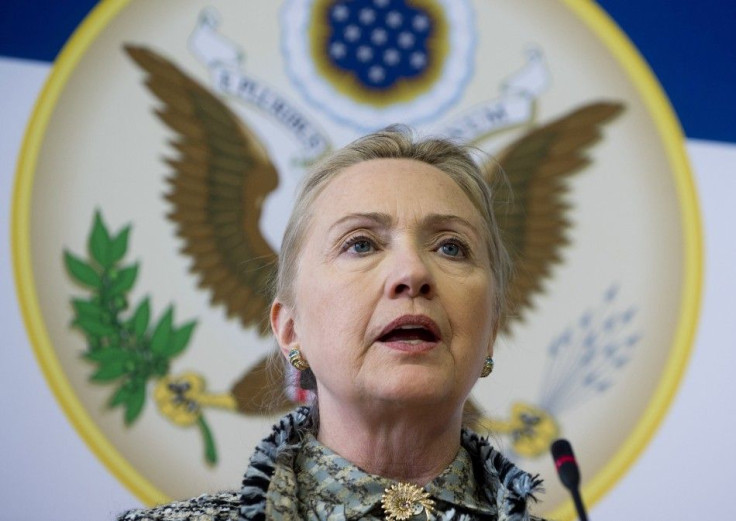Pakistan Reopens NATO Supply Routes: Why US-Pak Ties Are Too Important To Be Shunned

Did the U.S. really apologize for the drone strike that killed 24 Pakistani soldiers in November to end the seven-month deadlock in negotiations with Pakistan over the NATO supply route to Afghanistan? Not exactly.
The U.S. Secretary of State Hillary Clinton said we are sorry and offered deepest regrets over the accidental killings, but never used the word apology during a telephone conversation Tuesday with Pakistan's Foreign Minister Hina Rabbani Khar, which Islamabad construed as an official apology.
Announcing the reopening of supply routes, Pakistan's Information Minister Zaman Kaira said the U.S. was forced to apologize to the Pakistani people and its nation. If we go into the nitty-gritty of her words, then people will take it one way or another.
Foreign Minister Khar and I acknowledged the mistakes that resulted in the loss of Pakistani military lives, Clinton said in a statement. We are sorry for the losses suffered by the Pakistani military. We are committed to working closely with Pakistan and Afghanistan to prevent this from ever happening again.
An apology (at least a borderline one) from the U.S., hugely unpopular, of late, among Pakistani public for its drone attacks, was indispensable for Islamabad to avoid a domestic protest against the reopening of supply routes. The U.S., on the other hand, desperately needed to straighten things out as diplomatic ties between the two nations went downhill ever since the U.S. navy SEALs killed al Qaeda leader Osama bin Laden in a raid in Pakistan's Abbottabad in May last year.
Pakistan's new Premier Raja Pervez Ashraf on Tuesday said, The continued closure of supply lines not only impinges on our relationship with the U.S., but also on our relations with the 49 other member states of NATO/ISAF.
Ashraf's statement underscored what Clinton said in February about the importance of ties between the two nations that have had their fair share of ups and downs.
Building and sustaining a relationship based on mutual interest and mutual respect takes constant care and work, from both sides, remarked Clinton, on the sidelines of the London Conference in February.
I'm sure we will continue to have our ups and downs. But this relationship is simply too important to turn our back on -- for both nations.
And we both remain committed to continue working to improve understanding and cooperation.
Pakistan's religious groups have registered protest against the decision with the leaders of Defense of Pakistan Council (DPC) saying that resumption of NATO supplies was against the interests of Islam and Pakistan, according to Pakistani media reports.
Jamat-e-Islami Chief Munawar Hasan, in a statement Tuesday, said that the U.S. would be forced to withdraw from the region, unable to bear the skyrocketing operational expenditure on Afghanistan if Pakistani government didn't give in to Washington's coercion.
The rulers should refrain from selling the independence of the country and neighboring Afghanistan for dollars, Hasan was quoted as saying by Pakistani media.
So why is the U.S. trying to make amends with a nation despised for harboring militants, in an election year? And why did Pakistan reopen the supply route, risking internal condemnation especially when its leadership is going through a phase that can hardly be termed stable?
While the U.S. did say sorry, the administration took care to keep President Obama out of the scene although Pakistan's ruling PPP chairman Bilawal Bhutto Zardari demanded an apology from the U.S. President in May.
Details of the costs involved in reaching an agreement on supply routes were not revealed officially, though it turns out that the U.S. will now pay Pakistan $1.1 billion that Pentagon owes it, to reimburse Pakistani military's counter-terrorism efforts, according to a CNN report, citing a U.S. defense official who spoke on the condition of anonymity.
Pakistan's closure of the supply routes cost the U.S. an additional $100 million a month, Defense Secretary Leon Panetta recently estimated.
According to the new agreement, Pakistan will not seek $5,000 per truck as it had demanded earlier, significantly reducing costs involved in transit for Washington.
The closure of the route had been creating problems for the 140,000 foreign troops and Afghan citizens in the war-shattered zones. Nearly 70 percent of the NATO supplies to Afghanistan are transported via Pakistan, say official estimates.
Apart from the apparent financial win-win situation for both the nations, strengthened ties between Islamabad and Washington is never good news for the militant networks operating out of Pakistani soil.
The U.S. has been pressurizing Pakistan to start army operations against the extremist Haqqani network in North Waziristan, and with the new agreement on NATO supply routes, the Pakistani government will have to at least make an effort to act despite the fact that its military remains largely an independent entity.
The mounting sense in Washington that Pakistan is an untrustworthy partner may have delayed the agreement on NATO supply routes, but the fact that it did happen is a reason in itself to believe that both nations are dependent on each other, at least until stability is restored in the Pak-Afghan region before the withdrawal of the coalition troops in 2014.
© Copyright IBTimes 2024. All rights reserved.





















